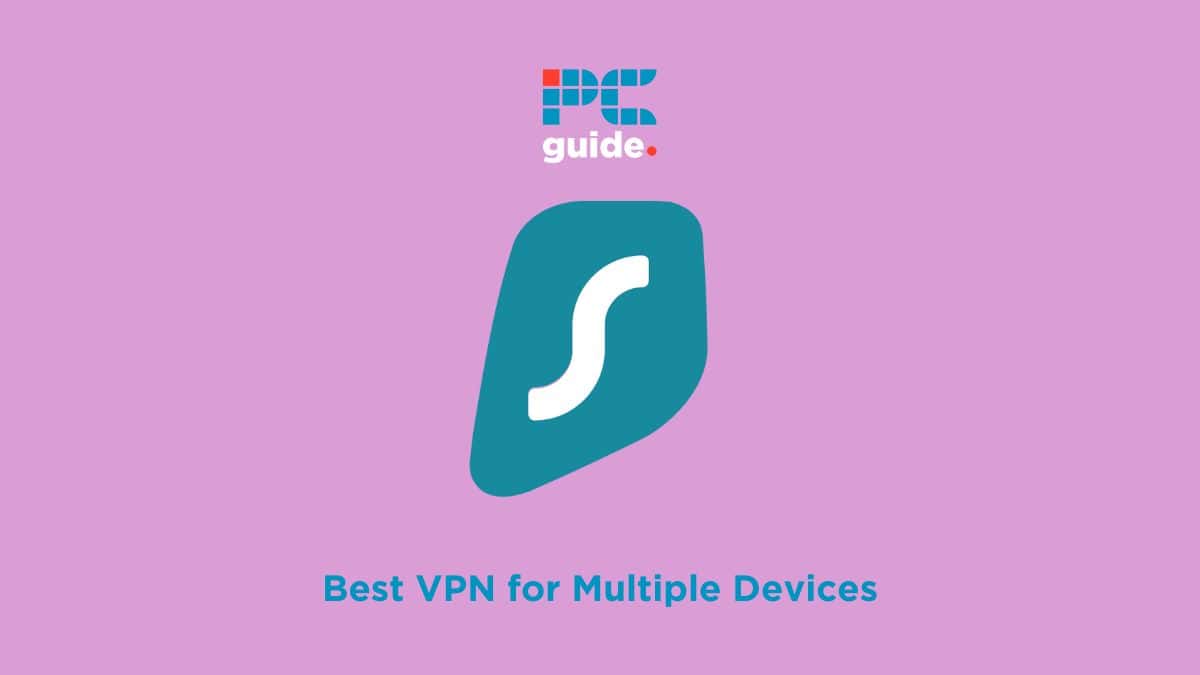Best VPN for Multiple Devices: Internet Security for all Devices

Table of Contents
Internet safety continues to be a high-priority conversation, with newer and more malicious forms of data theft and hacking becoming more prevalent by the day. In order to protect your personal data across your entire household, you need to invest in the best VPN for multiple devices. Covering a wide range of different devices – from smartphones, PCs, and game consoles – a top VPN offers privacy and security when browsing online from even some of the most determined of network invaders.
We’ve compiled a list of our favorite VPNs for multi-device households, accounting for different budgets and security requirements, so that no matter your needs you can safely secure your web connection from outside threats – no matter how many devices you own!
Products at a Glance
How We Picked the Best VPN for Multiple Devices
When choosing a VPN for your multi-device household, you ideally want a service that can scale with your needs: if you only need secure coverage for three or four devices, you don’t want to be paying over the odds for more superfluous connections. The best VPNs also need to provide security and privacy to your connection no matter the device as a base feature regardless of scale, but we gave extra preference to those that add value to your subscription. Features such as a password manager or ad-blocker included in the deal were given preferential treatment, as they provide additional benefits we always appreciate.
Finally, we looked for business models and prices that accounted for a number of different price points, so that customers could choose the service best suited to their price requirements.
Product Reviews
- Unlimited connections
- Fast speeds
- Affordable pricing
- Barebones features
Boasting unlimited VPN connections, SurfShark is the clear victor in terms of the best VPN for multiple devices. Accommodating as many VPN connections as you need, this fast and budget-friendly VPN service is ideal for private gaming, browsing, or streaming – or all at once!
Though VPNs can tend to draw on your overall connection speeds, SurfShark causes little to no issues, with fast connection speeds across the board. The VPN provider has 3,200 servers in over 100 countries, spoiling you for choice for internet security and geo-blocking bypassing. It’s also highly affordable, with multiple options for pricing and a free trial option. These all give you great versatility in your internet safety solution.
However, beyond the barebones requirements as a VPN, SurfShark offers little else for the subscription – additional features such as a Dark Web monitor or password manager are paid extras rather than featured as standard. Though this can drive the cost up, the unlimited number of connections still makes SurfShark the best VPN for multiple connections on the market!
- Six-device connection
- Good connection speeds
- Some server issues at long distances
NordVPN is a household name: if you’ve spent any time on the internet you’ve no doubt seen a sponsored post of their’s. The VPN provider lives up to the brand name, however, providing sterling security for your internet connection across a range of devices.
With speeds of up to 350Mbp/s, 5,500 serves and over 80 countries in which they operate, NordVPN spoils the user for choice. As a median between “too many” and “too few” connections, you can have up to six devices on your standard NordVPN package, each benefitting from the easy setup and friendly UI that can be found across Nord services. Their Dark Web monitor helps scan for your credentials should they be leaked, all whilst providing 256-bit encryption any time you connect to one of their many servers.
However, it’s worth noting that we occasionally ran into connectivity issues with some servers, particularly on mobile devices: connections would sometimes drop out unprompted, which can lead to unprotected browsing. This only seemingly happened during protracted periods of use, however, and doesn’t damage NordVPN’s reputation as a top-range VPN for multi-device households!
- Seven-device connection
- Highly secure
- Speed is not as fast as some VPNs
All VPNs are inherently secure to some degree, but CyberGhost up the game. This VPN provider provides top-of-the-line security to your VPN connection, on seven devices at once.
For their business model, CyberGhost promises no logging of data of any kind: total anonymity. Alongside 256-bit encryption and ad-blocking, this makes for one of the most secure connections to a VPN out there. The VPN hosts 6,600 servers across 110 countries, making for plenty of options to overcome geo-blocking on streaming sites and other locational issues.
That said, the connection speeds can vary wildly from server to server, with some slowing streaming sites down whilst others actively boosting connectivity, with no correlation between location or server type. CyberGhost remains a great VPN for multiple devices, however – especially if you need guaranteed secure browsing.
- Ten connections at once
- Highly affordable extra features
- Limited servers and locations
For a highly affordable VPN provider that allows for multiple devices, consider PrivadoVPN‘s offering. With some of the best value for money on this list, it may be in the bottom spot but it is far from a worthless investment.
You can have unlimited devices registered with PrivadoVPN, with ten simultaneous connections, all for a low subscription fee. That fee also includes ad-blockers, threat prevention and even parental configurations to protect your household from unsafe sites. PrivadoVPN also promises zero logs of browsing, so your IP address and information remains completely anonymous.
However, at only a few hundred servers across 64 cities, PrivadoVPN’s scale limits its overall variety as the smallest VPN provider on this list. However, it remains a great option for those who use multiple devices and require a highly secure VPN!
- Five connections is still a reasonable number, especially if you’re just investing in it for your own use
- The world’s fastest VPN’ is great for gaming and streaming
- No data limits means you’re likely to use the VPN more
- Having no access to the OpenVPN protocol is troublesome
- Alone among our VPNs, it collects data
As we began, so we end. HotSpot Shield gives you five connections.
While at the start of our journey, that seemed like quite enough, having seen other options with many more simultaneous connection options, it feels less generous at the end of our exploration.
On the other hand, when you connect to HotSpot Shield, it tries very hard to make it worth your while. It imposes no data limits, so once you’re connected, you can go hog wild in terms of downloads and streaming.
Also for the gamers and streamers, HotSpot Shield has been independently judged to be the fastest VPN in the world. That’s fine as far as it goes, but it ties you into using proprietary HotSpot Shield protocols, rather than the much more widely understood OpenVPN protocols.
And for full-on internet privacy, the HotSpot Shield offering collects and stores an unnerving amount of data – including how much bandwidth you use, how long you use it for, and your device’s ID. That makes it less popular among users who want absolute online anonymity. But for those who want gaming speed or connectivity to a lot of entertainment archives, it’s still very much worth considering.
Is a VPN worthwhile?
The straightforward answer is yes: a VPN offers privacy and security for your most valuable data at an often microscopic cost. By anonymizing your online presence to everyone from the internet service provider to the website itself, browsing is rendered safe from any man-in-the-middle attacks or other hostile presences attempting to harvest your information. It also enables you to overcome locational barriers, for added freedom of information and versatility – as well as foreign Netflix catalogues.
Overall, there are few downsides to using a VPN, beyond the cost. Just be sure to use a reputable site, otherwise you could fall victim to the same level of data harvesting you’re attempting to avoid!
Are VPNs legal?
Yes: Not only are VPNs legal, they are highly recommended for security.
How many devices can I use my VPN on?
This is dependent on the package and choice of VPN: some offer unlimited connections, whilst some VPN providers will limit logins to prevent you from overloading their servers. Check your subscription details for the best results.
Our Verdict
For the best VPN for multiple devices, it’s impossible to beat SurfShark’s lack of limitations on devices. Though the base product is fairly rudimentary, SurfShark VPNs offer great value for money for households needing lots of device security, and promise anonymous and versatile browsing safety across the full range of devices.
Keep up with the latest in internet safety – including guides on the best antivirus programs – with us here at PC Guide.




